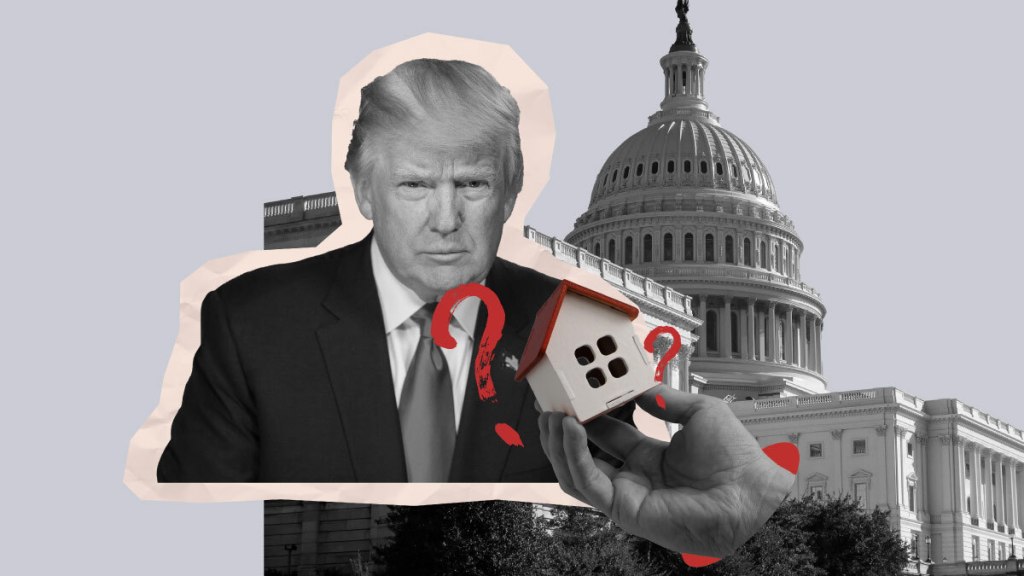Editor’s note: This is an ongoing story and has been updated from prior versions. It will continued to be updated as more information becomes available.
The federal funding freeze has melted — or has it? The Trump administration circulated a new memo Wednesday morning that rescinds a previous memo released on Monday that put a sweeping funding freeze on federal grants and foreign aid.
But White House press secretary Karoline Leavitt tweeted later in the day that the Wednesday morning memo rescinds only the Monday memo, not the actual spending freezes in previously signed executive orders.
According to The Washington Post, this means that federal funding pauses related to foreign aid and Biden-era clean energy funds remain in effect.
The rescission of the Monday memo appears to be a way of working around the Tuesday afternoon ruling by U.S. district judge Loren AliKhan in Washington, D.C., on a lawsuit brought by multiple nonprofits against the Trump administration.
The ruling placed a temporary hold on the actions laid out in the Monday memo, which intended to freeze foreign aid and the disbursement of unspecified federal grants at 5 p.m. ET Tuesday. The ruling came just minutes before that time.
But if yanking the Monday memo was indeed a workaround to that ruling, Leavitt’s tweet may have backfired. Shortly after the tweet, a second U.S. district court judge — John McConnell in Rhode Island — said he is inclined to put a hold on the freeze, calling the Monday memo “hugely ambiguous.”
Trump may be looking for a more thorough workaround to any rulings by judges. Bloomberg News reported Wednesday that the White House is circulating a slide deck labeled “confidential” that outlines different ways the administration can seize control of federal spending from Congress.
The effort targets the Impoundment Control Act of 1974, which restricts the president from cutting funding without congressional approval. The law was passed after former President Richard Nixon attempted to cancel billions of dollars in congressionally appropriated funding. Bloomberg said the effort would challenge the constitutionality of the law.
As a result of the flurry of memos — which in some cases contradict each other — the second week of Trump’s presidency has been mired by widespread confusion and panic among multiple industries and stakeholders.
Both President Trump and Leavitt deflected blame. At a contentious press conference Tuesday afternoon, Leavitt said there’s no uncertainty “in this building” and that the uncertainty is only among members of “the media.” On Wednesday afternoon, Trump accused the press of purposefully creating the confusion. Leavitt’s Wednesday afternoon tweet acknowledges there is confusion.
To the extent that confusion is among the news media, it’s shared within the Republican Party. The Hill reported Thursday that retracting the Monday memo came after numerous Republican senators expressed opposition to the White House.
The Hill quotes a anonymous senator as calling the memo “shocking.” Sen. Lisa Murkowski (R-Alaska) and Sen. Susan Collins (R-Maine) went on the record by saying they told the White House directly that the memo was written “far too broadly.”
And in the eyes of many other stakeholders, the Wednesday morning memo that rescinded the Monday memo —but not the Jan. 20 executive orders that pause funding that isn’t specified in the Monday or Wednesday memos — has done little to clear things up.
This chain of memos is only one piece of a complex puzzle. Tuesday morning, the administration circulated a memo that directed federal agencies to review select programs and submit their findings to the Office of Management and Budget (OMB) by Feb. 7 — and this memo still stands.
The programs targeted by the memo include 100 administered by the U.S. Department of Housing and Urban Development (HUD) — including rental assistance, Section 8 housing vouchers, the public housing capital and operating funds, Community Development Block Grants (CDBGs), the Choice Neighborhoods program and Project-Based Rental Assistance.
HUD’s HOME and CDBG initiatives would comprise the majority of programs affected, as 469 of them rely on HOME funding and another 265 rely on CDBG funding. The White House is also targeting programs for mortgage insurance and manufactured housing.
Given the scope of the HUD programs listed, it effectively called for a review of HUD in its entirety. Notably missing is the Low Income Housing Tax Credit (LIHTC) program, which real estate developers use to help fund projects in exchange for renting a percentage of units at affordable rates.
But later on Tuesday, the Trump administration released a follow-up memo saying that the previous memo merely establishes a process for agencies to “quickly determine whether any program is inconsistent with” Trump’s previous executive orders, and that a pause could be as short as a day. The memo explicitly stated that rental assistance would not be paused.
Yet language later in the memo seemed to suggest that the original memo was intended as a funding pause deemed necessary “to act as faithful stewards of taxpayer money.”
While news media works to sort this out, many in the housing industry are trying to do the same, with some stating that they oppose a freeze on funding.
“Even a short pause in funding could cause significant harm to low-income families and their communities,” Renee Willis, interim president and CEO of the Low Income Housing Coalition, said in a statement. “The longer the freeze continues, the greater the risk that low-income households receiving federal rental assistance could face eviction, and in the worst cases, homelessness, homeless shelters may be forced to close their doors, and nonprofit organizations may have to lay off staff.”
Down Payment Resource (DPR), which connects eligible homebuyers to down payment programs, estimates that if the Tuesday morning memo were to be enforced, roughly one-third of the nation’s 2,466 U.S. homebuyer assistance programs would be frozen.
“The full impact this will have on the availability of federally-funded homebuyer assistance programs is unclear, and some administrators who accept federal funding have paused associated assistance programs and educational workshops,” a DPR spokesperson shared with HousingWire in an email.
In response to the Monday memo that was rescinded Wednesday, Mortgage Bankers Association (MBA) president and CEO Bob Broeksmit released a statement Tuesday saying the Federal Housing Administration (FHA), U.S. Department of Veterans Affairs (VA) and the Department of Agriculture (USDA) “must clarify” that the memo does not suspend their payments for single-family and multifamily loan insurance or guarantee programs.
“Americans are going to the closing table tomorrow and deserve to know that their loan will close on their home purchase,” the statement reads. “Without this clear assurance that the federal government will insure new loans or pay claims under these programs, there will be severe harm to borrowers and disruption to the mortgage market.”
The FHA released a statement saying its single-family Title I and Title II mortgage insurance programs “remain operational and are not subject to the pause in federal grants and loans outlined in OMB’s memo.” Meanwhile, the VA said it conducted a “comprehensive analysis of all its federal financial assistance programs and consulted with OMB.” It determined that all 44 of these programs, as well as all VA programs and operations, “will continue uninterrupted.”
VA has determined that all 44 of its financial assistance programs will continue uninterrupted and that all VA programs and operations will continue uninterrupted.
Previous moves by Trump that affect housing include a federal hiring freeze and regulatory freeze.







While I agree with much of the content in this article, it’s clear that HousingWire has a bias against Trump based on how it was written. Biden’s policies have significantly impacted the housing market, yet I’ve never seen an article here with the same level of criticism. While Trump’s rollout may have been confusing, the real issue—taxpayer dollars being misused in ways that hurt both us and our clients’ access to affordable housing—doesn’t seem to get the same attention, simply because it’s coming from a Republican rather than a Democrat.